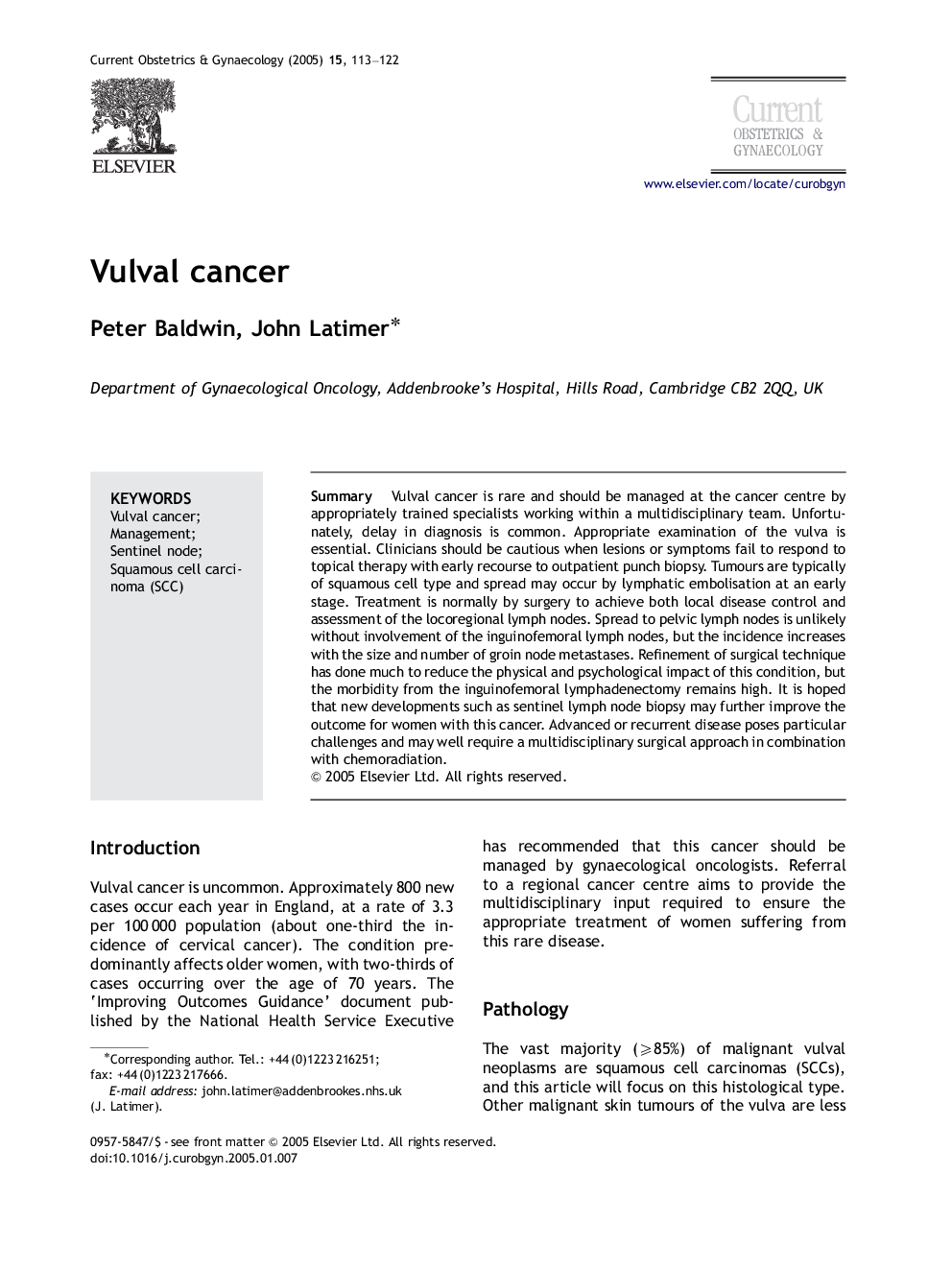| Article ID | Journal | Published Year | Pages | File Type |
|---|---|---|---|---|
| 9318312 | Current Obstetrics & Gynaecology | 2005 | 10 Pages |
Abstract
Vulval cancer is rare and should be managed at the cancer centre by appropriately trained specialists working within a multidisciplinary team. Unfortunately, delay in diagnosis is common. Appropriate examination of the vulva is essential. Clinicians should be cautious when lesions or symptoms fail to respond to topical therapy with early recourse to outpatient punch biopsy. Tumours are typically of squamous cell type and spread may occur by lymphatic embolisation at an early stage. Treatment is normally by surgery to achieve both local disease control and assessment of the locoregional lymph nodes. Spread to pelvic lymph nodes is unlikely without involvement of the inguinofemoral lymph nodes, but the incidence increases with the size and number of groin node metastases. Refinement of surgical technique has done much to reduce the physical and psychological impact of this condition, but the morbidity from the inguinofemoral lymphadenectomy remains high. It is hoped that new developments such as sentinel lymph node biopsy may further improve the outcome for women with this cancer. Advanced or recurrent disease poses particular challenges and may well require a multidisciplinary surgical approach in combination with chemoradiation.
Related Topics
Health Sciences
Medicine and Dentistry
Obstetrics, Gynecology and Women's Health
Authors
Peter Baldwin, John Latimer,
